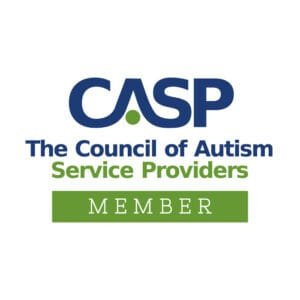5 Ways to Support Child Mental Health in this Pandemic
The ongoing COVID-19 pandemic is having a significant impact on the mental health of children and families. In this post, you’ll learn important research that illustrates the pandemic’s impact on child brain development and mental health and why that matters for long-term wellness. You’ll also learn how to support healthier development and better mental health in this pandemic.
The True Impact of the COVID-19 Pandemic on Child Mental Health
As this pandemic continues, scientific research is revealing more and more about this pandemic’s impact on child and family mental health. This emerging evidence is not positive.
Infant and Early Childhood Mental Health
Recently released research suggests that infants born during the pandemic have less gross motor, fine motor, and communication skills on average than children born before it. This was unrelated to whether the parent(s) had contracted COVID-19. Scientists hypothesize that this reduction in skills development may be linked to the pandemic environment.
Another recent study found that babies born during the pandemic scored almost two standard deviations lower in cognitive tests than babies born pre-pandemic. These tests are similar to an IQ test but for very young children. While this doesn’t necessarily mean that these children will have reduced IQs long-term, it does indicate that pandemic babies have less developed language, puzzle-solving, and motor-skills at this point in time than they would have without the pandemic.
A survey of more than 8,000 pregnant people found that almost half reported symptoms of anxiety, and one third experienced symptoms of depression. Some babies born to parents who reported elevated distress had different structural connections in their brain, which may have an impact on these children’s ability to regulate emotions and attention.
5 Tips for Supporting Your Child’s Mental Health During the Pandemic
There are a few things that you can do to support your child’s mental health during this difficult time.
- Create opportunities for group play and social interaction between your child and others. Research suggests that children who continued to participate in group settings, such as day care or preschool, had stronger language, motor and social skills than those without.
- Actively support your child’s mental health and provide support where needed. If your child is expressing symptoms of anxiety or other mental health concerns, seek mental health support quickly. Children are resilient, but that resiliency is dependent upon getting the help they need to bounce back.
- Dedicate time to talk and play. Play is essential for a child’s development. So is communication with your little ones. Actively engaging with them is critical to their cognitive, social, and emotional development.
- Provide development-appropriate stimulation. It’s important to introduce your child to new ideas, textures, images, and words to support their development. Seek out developmentally appropriate books, toys, games, and music that will offer age-appropriate stimulation.
- Cultivate a healthy, stable caregiver-child relationship. More than anything, your child needs your love, support, and care. Healthy, stable relationships provide the personalized responsiveness, scaffolding, and protection that buffer children from developmental disruption. It’s also helpful for children to see you model the loving self-care behaviors you want them to have, like reducing stress and taking time for relaxation.
If you’re looking for help managing your family stress, getting support in parenting and relationship challenges, helping a little one navigate mental health concerns like anxiety or depression, or even guidance on how to reduce tantrums, AB Spectrum is here to help.
Autism and Behavioral Spectrum is the world’s first Reggio Emilia ABA therapy clinic committed to building respect, responsibility, and community for a brighter future. Therapy through play is a term used in education and psychology to describe how a child can learn to make sense of the world around them. Through play children can develop social and cognitive skills, mature emotionally, and gain the self-confidence required to engage in new experiences and environments.
We’re currently able to work with families in Missouri. If we’re not yet available in your state, we’d encourage you to explore our growing resource section here.







